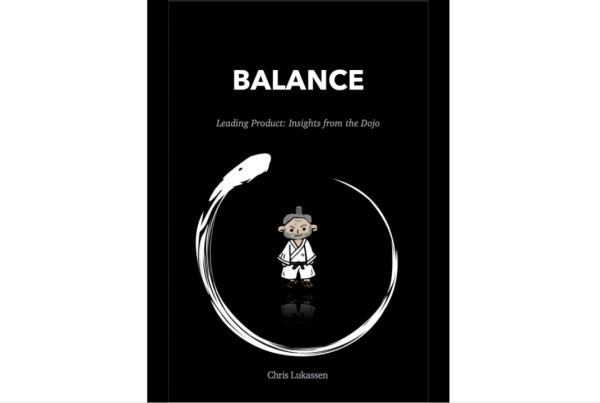If you took a look at my LinkedIn profile, you would notice, in 2009, a 7-month gap in my employment history. That’s because on this very week exactly 8 years ago, I lost my job as an executive of a major financial institution, a job I had been extremely proud of and that in many ways, defined how I thought of myself. I was clearly suffering from some kind of overconfidence or denial because I never saw it coming.
The world in those days was in the midst of the worst financial crisis since the Great Depression. Companies everywhere were failing, others were implementing massive layoffs. Financial markets were still plummeting and nobody knew how it would all end.
Objectively, I hadn’t picked a great time to lose my job. As an executive in his thirties, with a young family and a stay-at-home wife, in an industry that was getting decimated all around the world, I should have been seriously shaken and afraid. Probably because I didn’t want to face the precariousness of my situation, I was not in the mood for much introspection and pushed down the feelings of fear, rejection and failure that most people experience in similar circumstances and that had been lurking just underneath the surface. They would come back to haunt me in their own time.
For now, I was mostly angry. I had given that organization everything I had for the past five years, I believed I had done a really good job and took my dismissal as a deeply personal betrayal. Surely, I thought, there must have been other, less deserving people to let go. I threw myself into a flurry of networking activity: I would find a new job – so quickly that people wouldn’t believe it – and really show them that they had let the wrong guy go. I did find a new job pretty quickly given the circumstances and while it wasn’t as senior as the one I had lost, I was happy to put this chapter of my life behind me. I was back on track and would figure out the next steps as I always did. Case closed.
Or so I thought.
Life has a way of closing the loop on things and I was finally forced to confront the deeper issues a few years later, when the new organization I was working for went through a restructuring of its own. By then, what I had come to think of as a road bump in my career was just a bad memory, tucked away safely where it couldn’t bother me. But you don’t always get to choose what you will have to deal with.
Unlike the previous one which I had not really seen coming, this restructuring unfolded almost in slow motion right before my eyes. This time around, I knew exactly what the organization was about to go through and had lots of time to think about it. All the emotions that I had pushed down when I had lost my job a few years back came back and for the first time in my career, I was scared.
It didn’t happen all at once but instead built up gradually as the shape of things to come started to become apparent. By the time we were a few months into the restructuring, it was weighing down on me terribly. I knew what might happen – I had been there before – and desperately didn’t want to go through it again. My imagination started playing games on me and for months, I kept waiting for the other shoe to drop. I was going through the roller coaster of emotions that I should have experienced three years earlier. I started having trouble sleeping at night, which had never happened to me before.
The stress and anguish that I experienced during that period opened my eyes to the way many others were also feeling. I noticed how I kept looking for signs from my superiors that everything would be all right – that I would be all right –, and started recognizing when people sought some reassurance from me, often indirectly. It was a very difficult time for a lot of people and I could feel the emotions that were going through the organization.
In those days, I became keenly aware of what this senior leader said or did that made me feel better, and of what that other one said or did that made me feel lousy. Invariably, the leaders who helped me the most were the ones who chose to open up candidly and talk to me person to person rather than quote from the approved script. I’m not talking here about leaders who skirted their responsibilities towards the organization in any way, but about leaders who acquitted themselves of their difficult responsibilities in a way that was genuinely caring and respectful of others and who were willing to take the risk of showing a glimpse of their inner selves out of consideration for them.
Very few leaders turned out to be willing or able to put themselves out there in such a way, at least with me. I do not mean this as a disparaging comment because I understand why: It is often much safer, in the corporate world, for leaders to project an image of invulnerability. To those leaders who went out on that limb to make it easier for me and many others to get through those difficult times, I am still immensely grateful. You are the ones I decided I wanted to emulate.
I did a lot of thinking that year about things like my values and my deeply held beliefs, what my job meant to me, what I wanted out of life and my career and many other questions of a similar nature. As I was wrestling with those thoughts and emotions I required, and received, the most help I had ever needed from the people who are closest to me, and first and foremost my wife. I don’t know how I could have pulled through without them, and that forced me to rethink the misguided belief in complete self-reliance that I had held throughout my life up to that point. Out the window went Superman. This alone would make everything that I just described worthwhile.
That year turned out to be, for me, what author and Harvard Business School professor Bill George refers to as a “crucible”. It allowed me to clarify why I come to work every day – my purpose – and I came out of it with new priorities, both personal and professional. It is now a part of the life story that underpins who I am as a person and as a leader and for that reason, ranks as one on the most important and determining experiences of my life – personally and professionally.
Most people, at some point or another, will experience their own crucible; that time in their lives, as Bill George has said, when they come face to face with themselves and recognize that life is about more than being the hero of their own journey. Years later, it is still not easy to write about all of this. I hope that by sharing my own crucible, I might help others come to terms with theirs.



